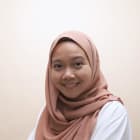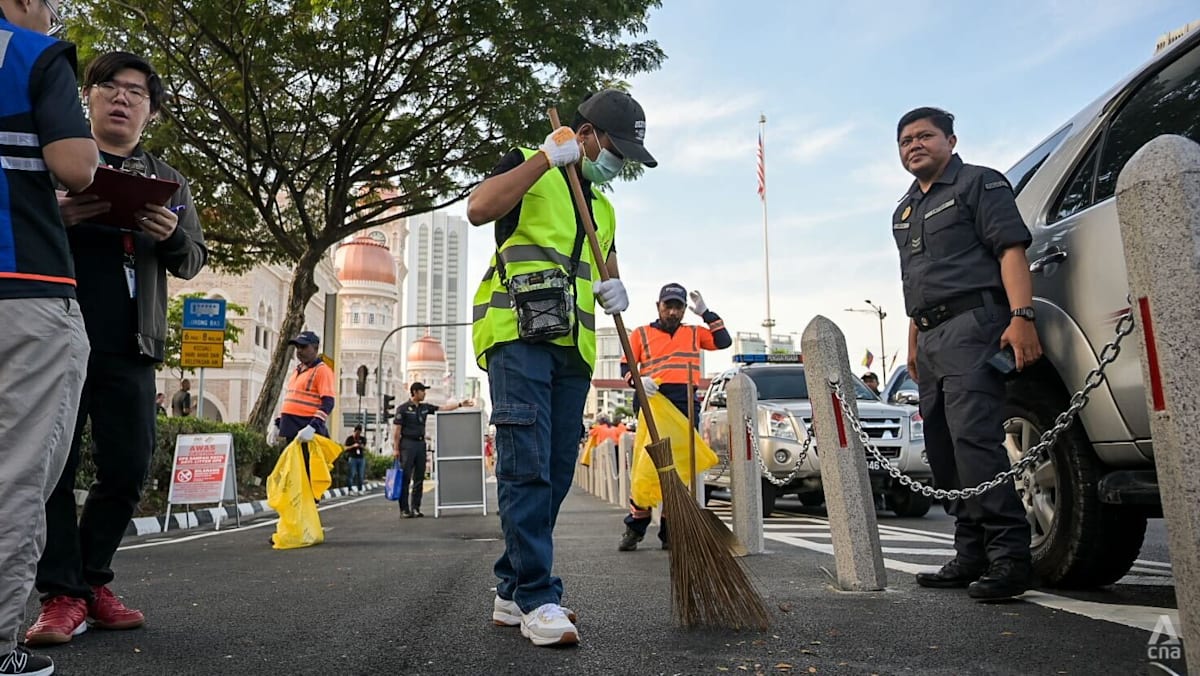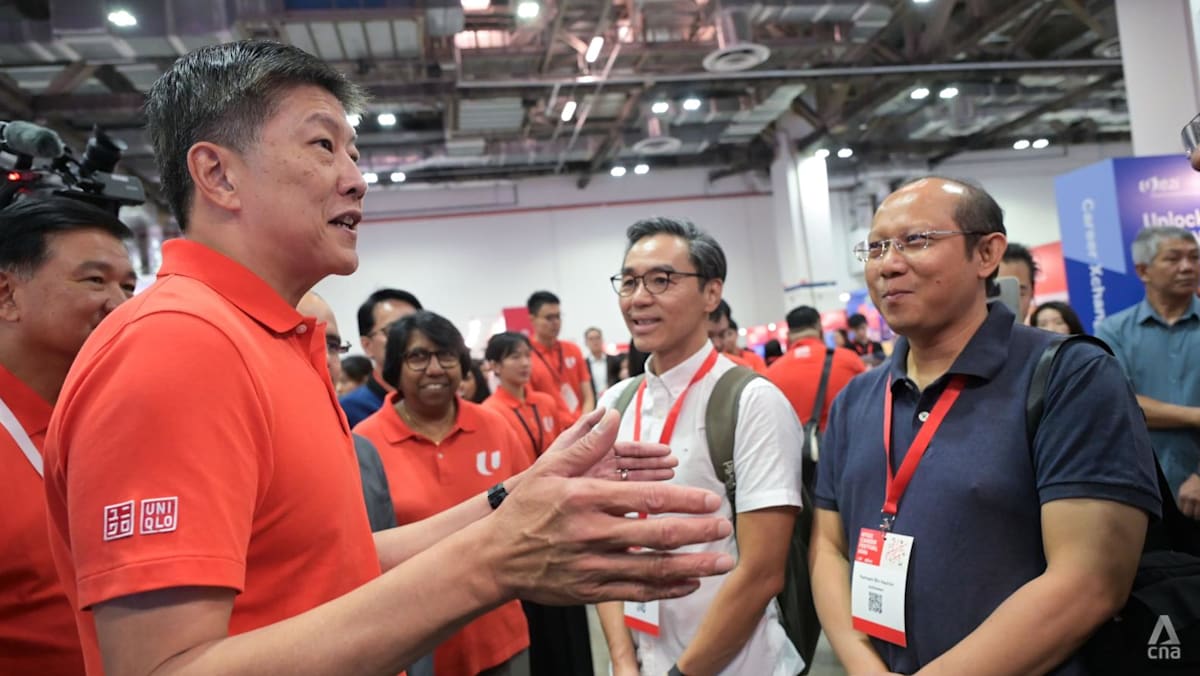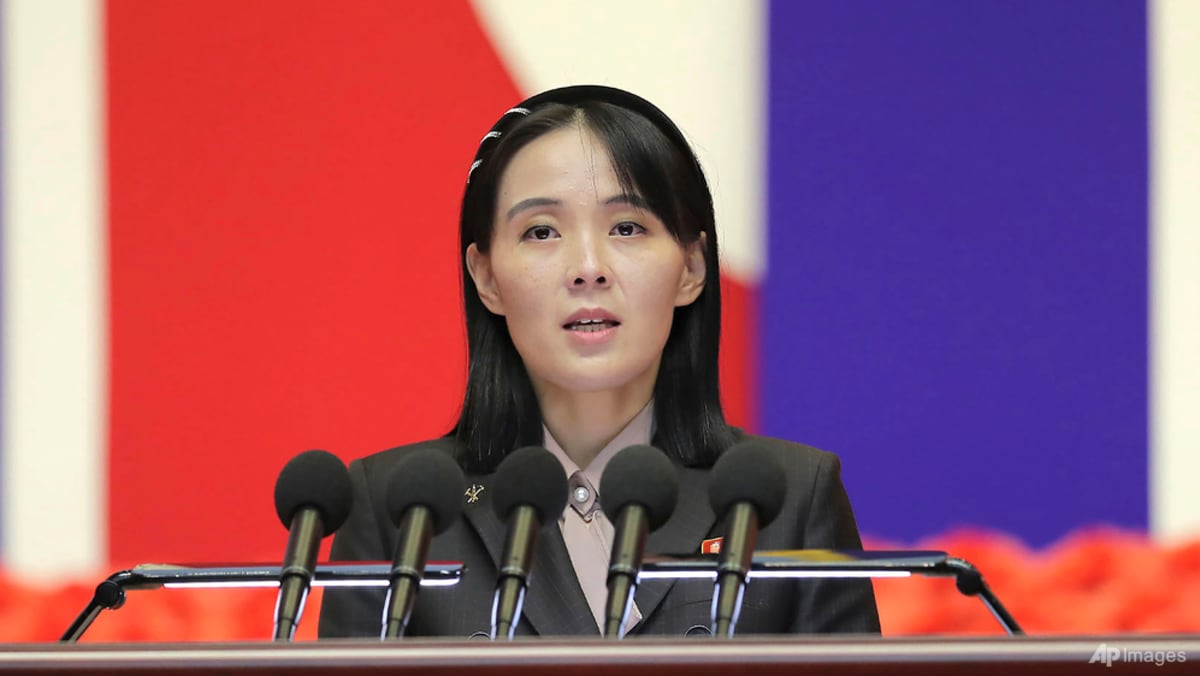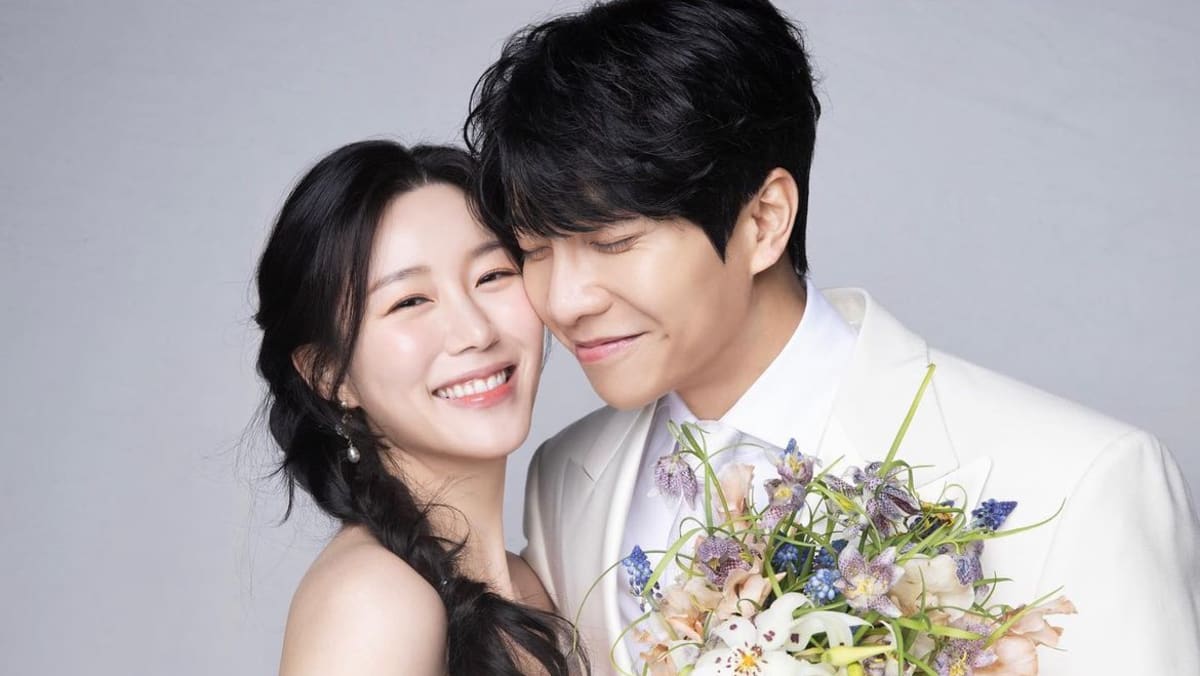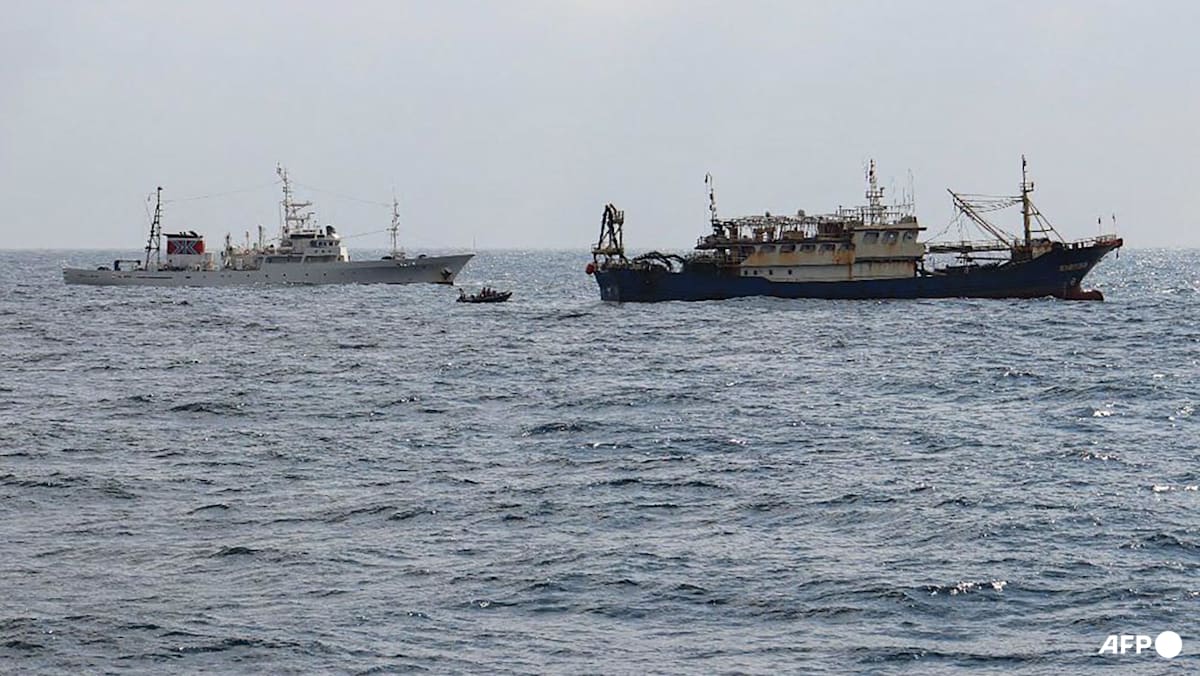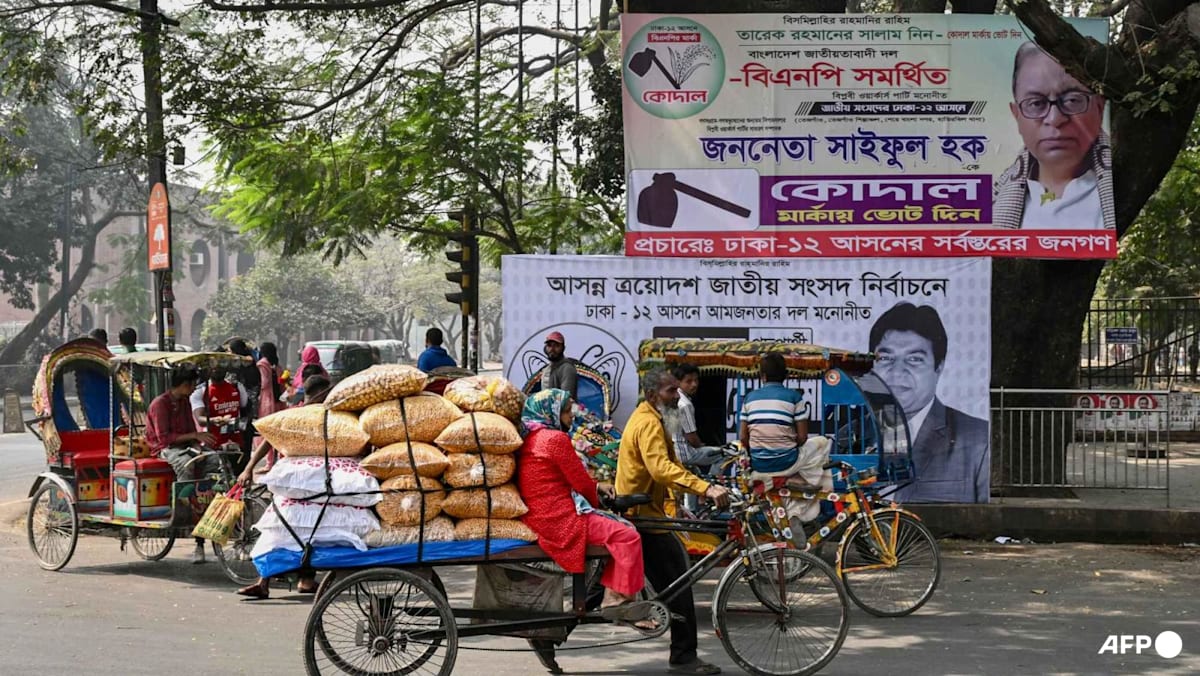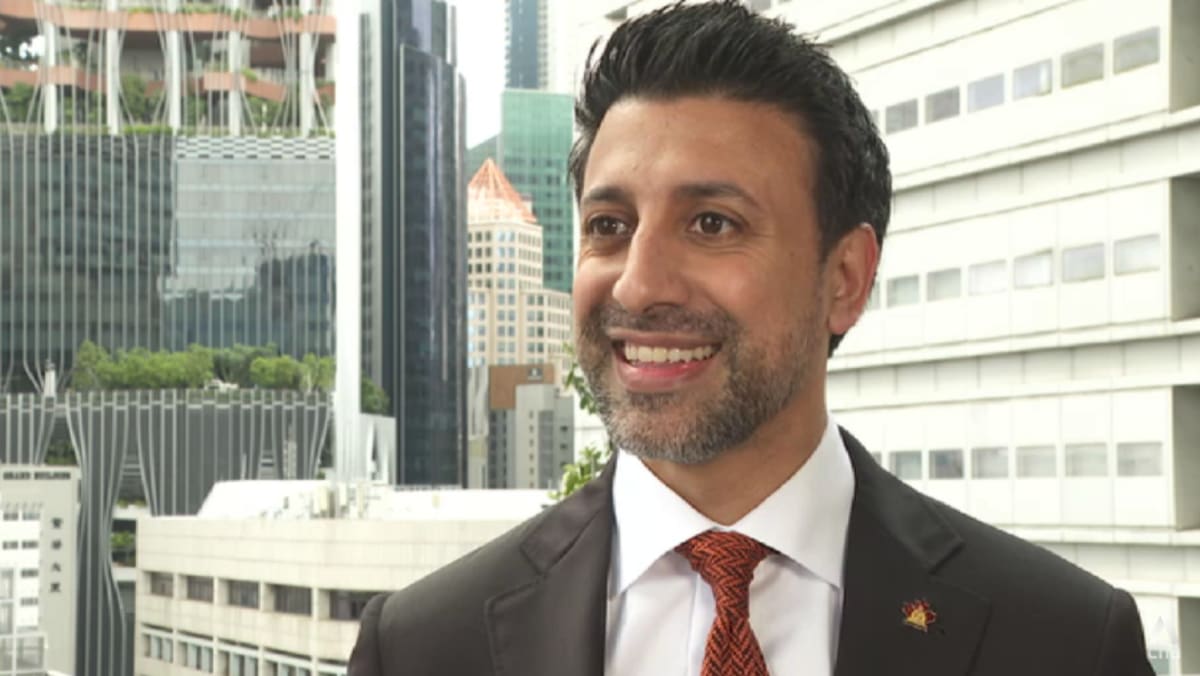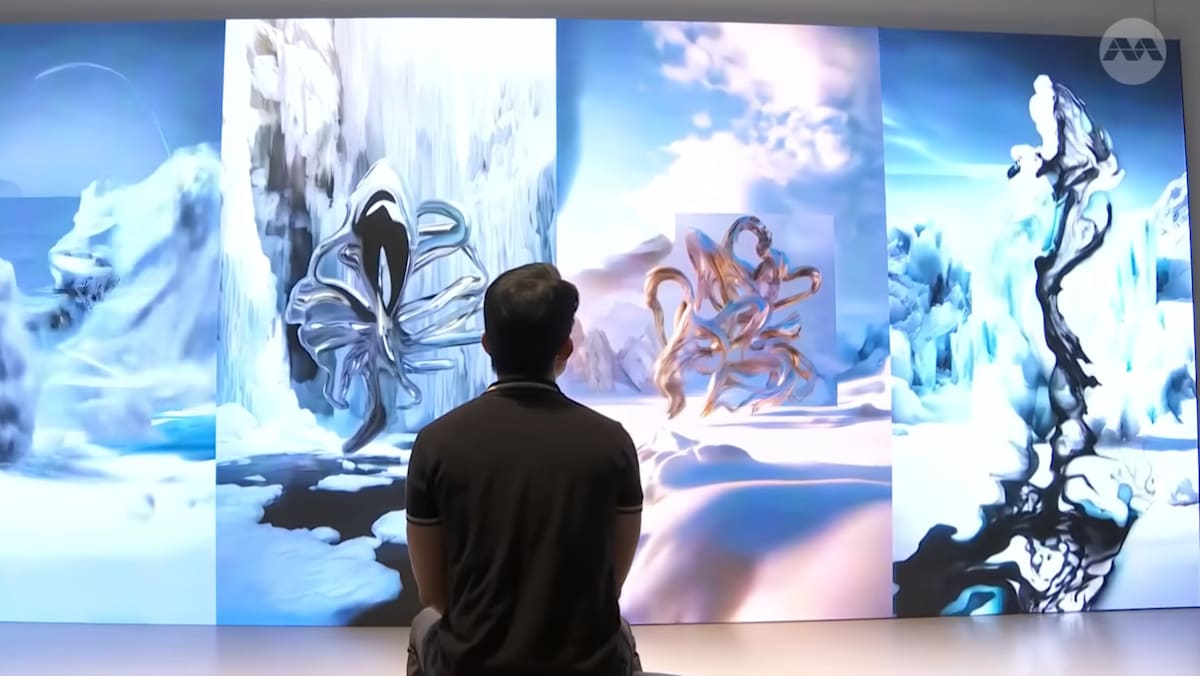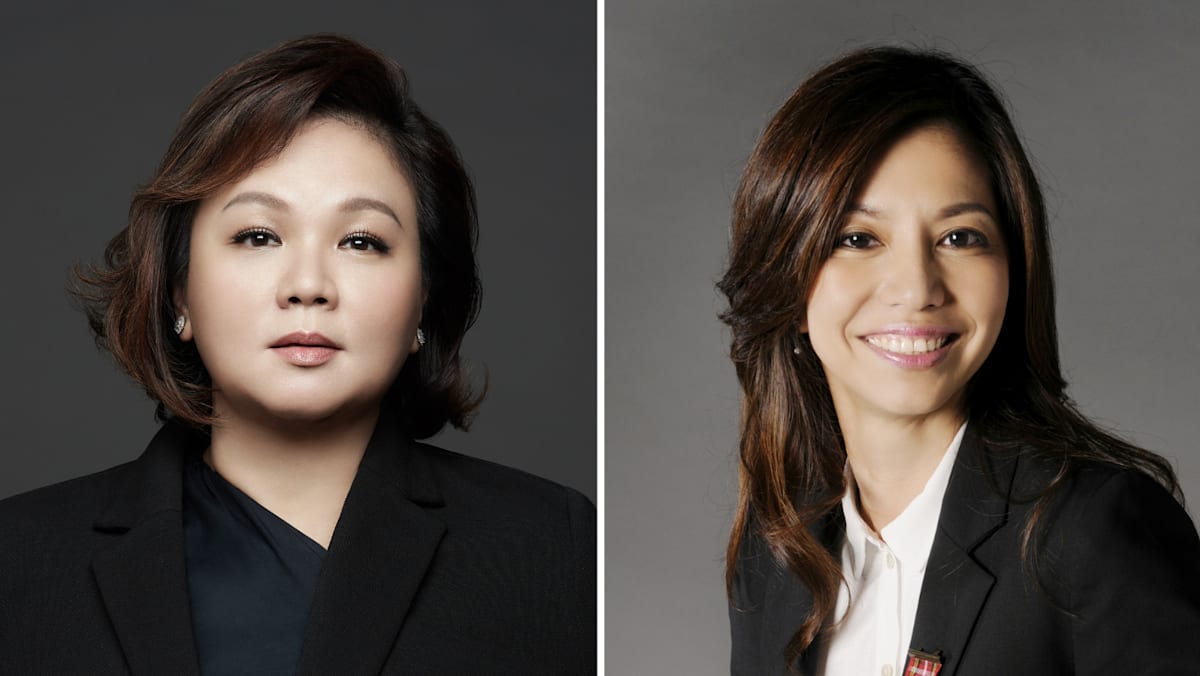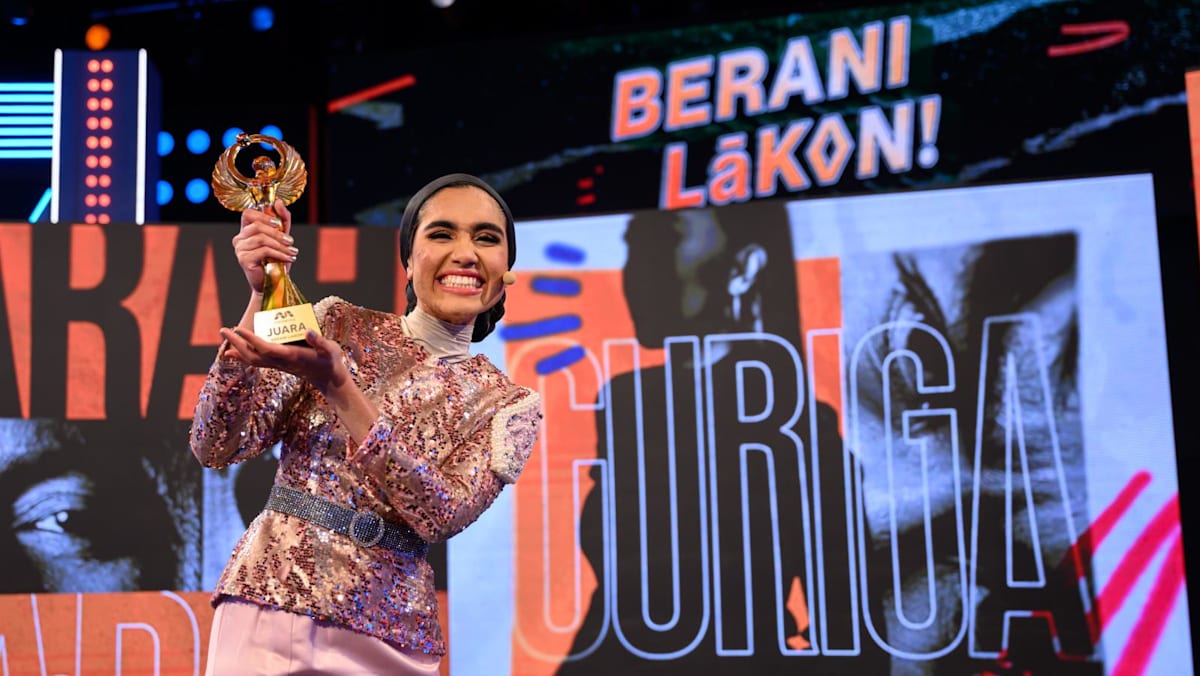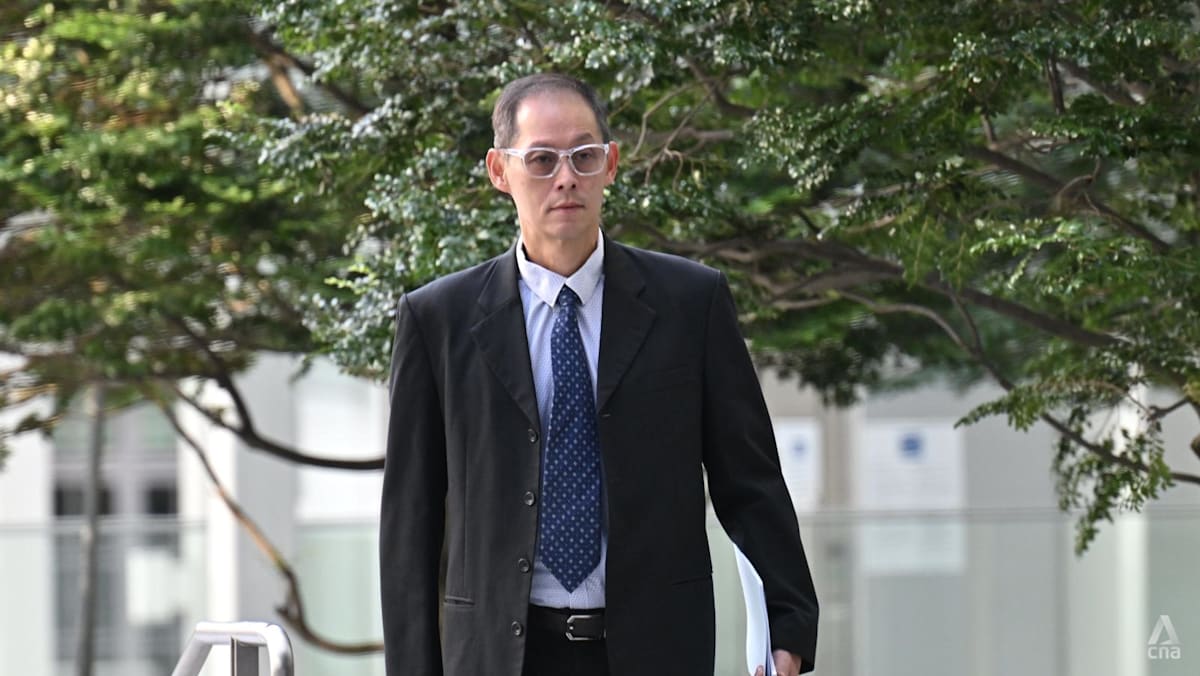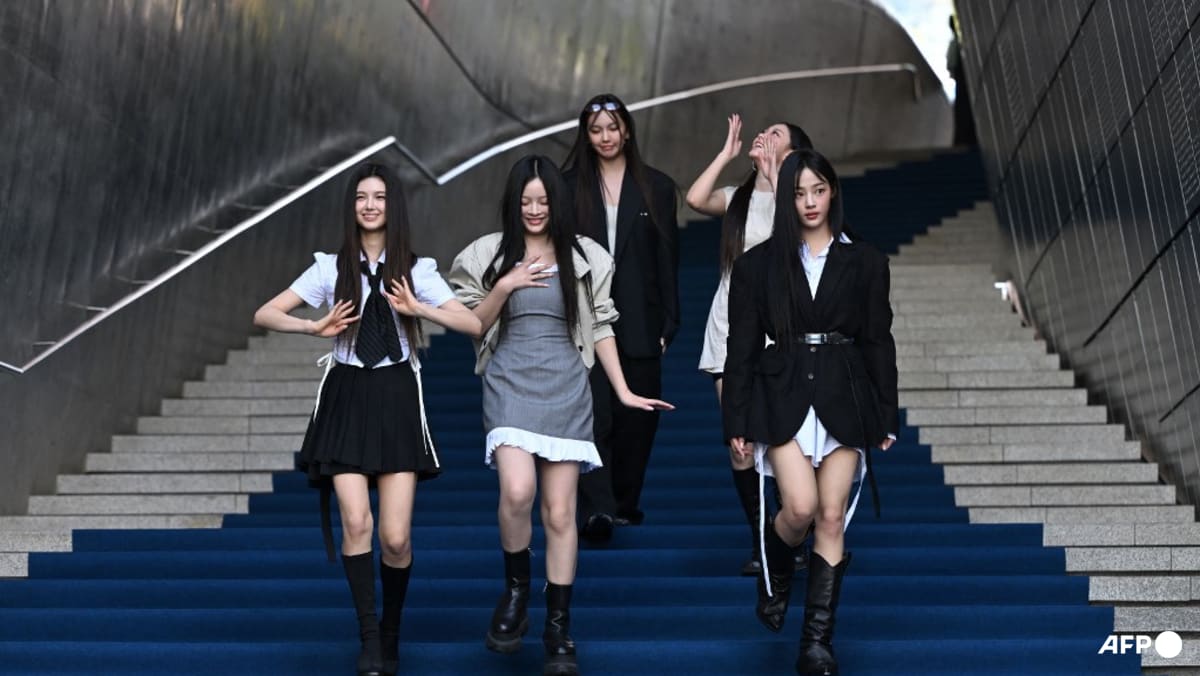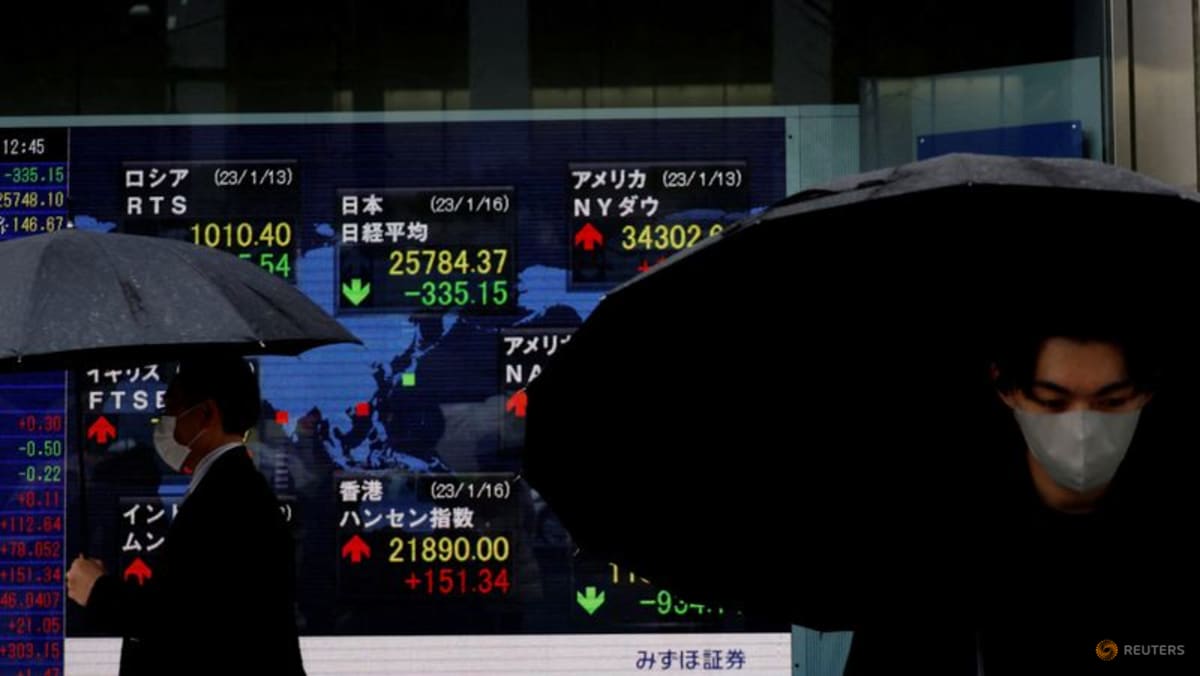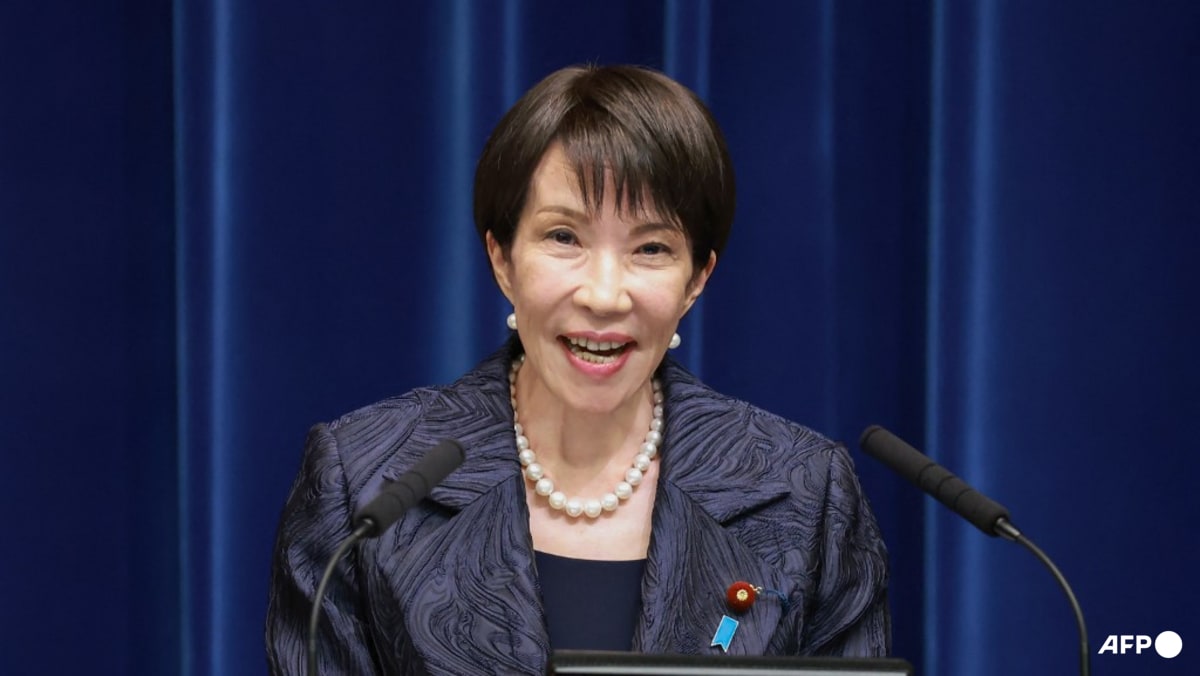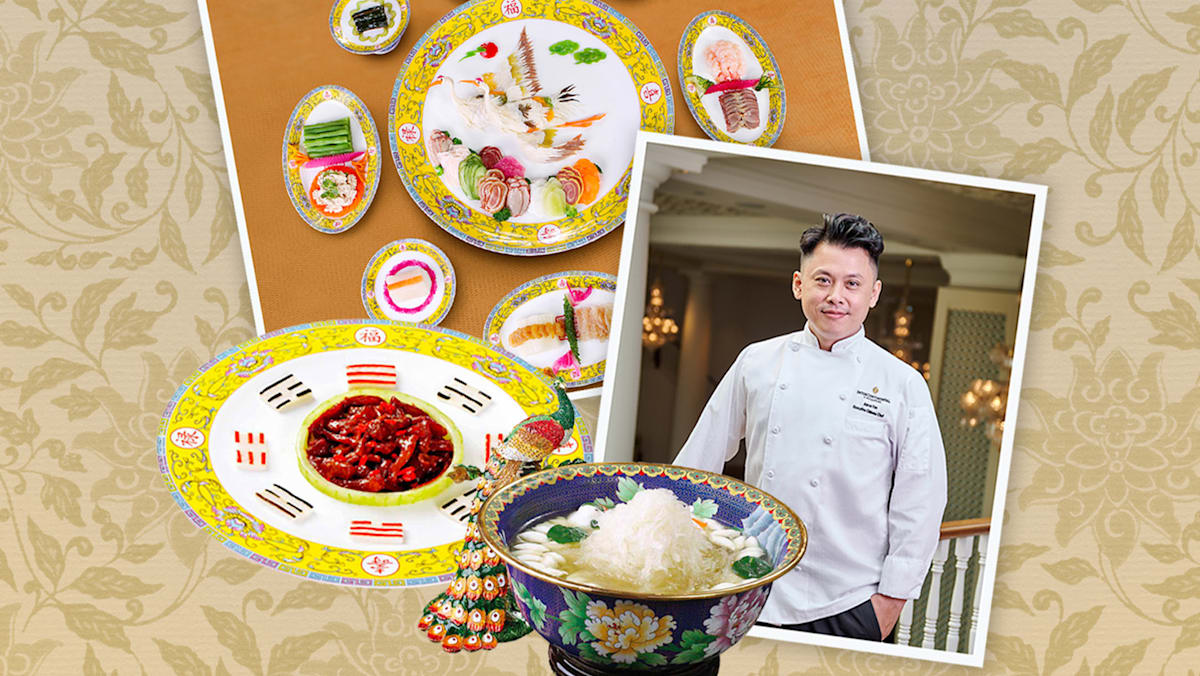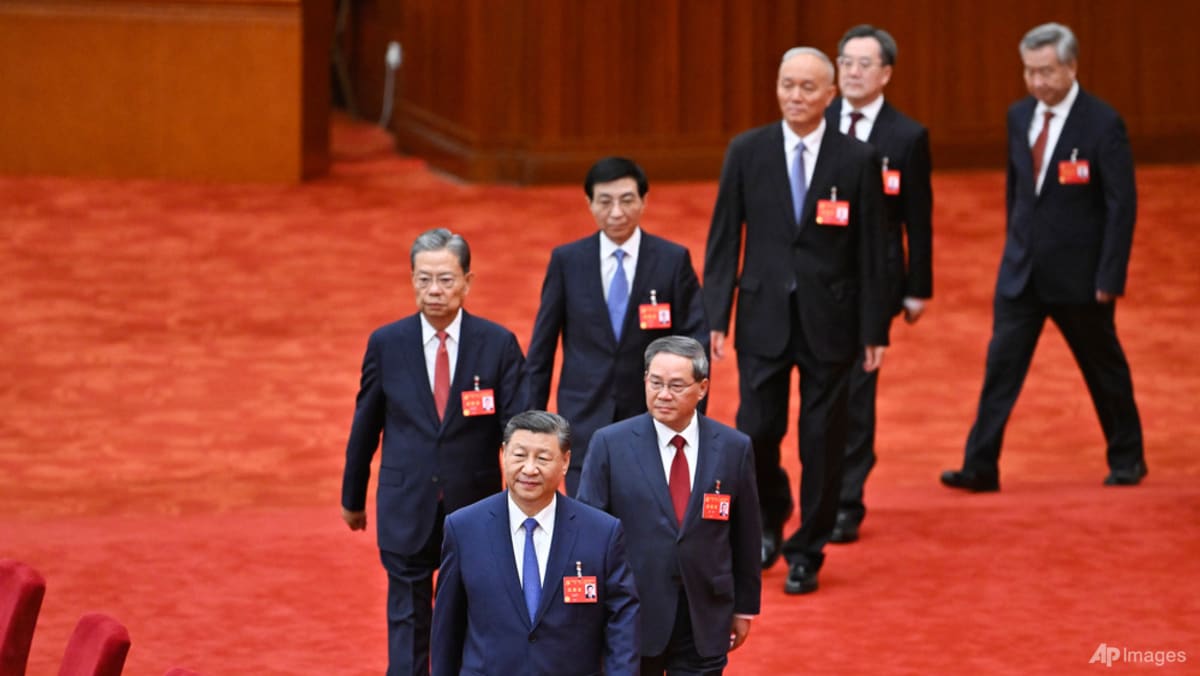At the Singapore Writers Festival 2025 opening weekend, Chinese-American author RF Kuang tells CNA Women how her identity and academic work shape her stories, and what it means to inspire young readers around the world.
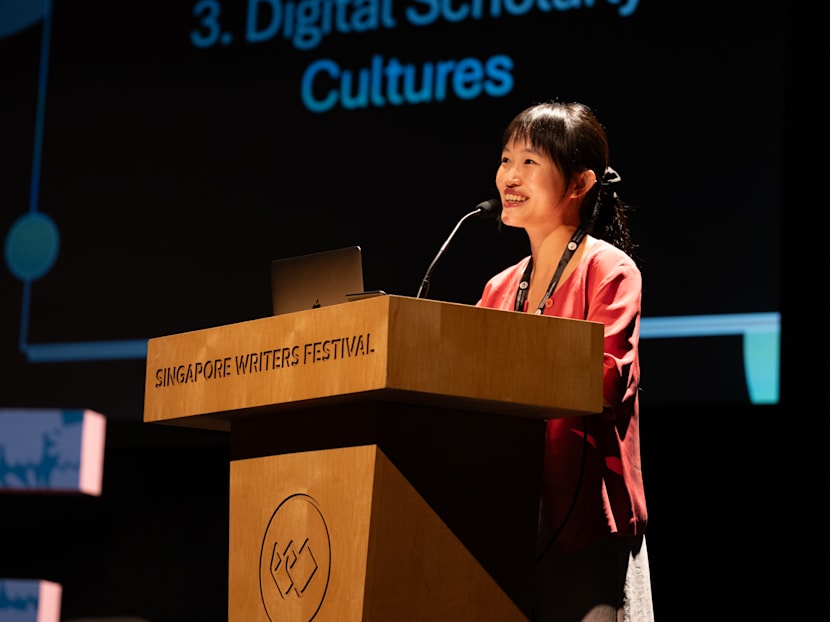
Chinese American author RF Kuang was the keynote speaker and panellist at this year’s Singapore Writers Festival. (Photo: Moonrise Studio, courtesy of Arts House Group)
New: You can now listen to articles.

This audio is generated by an AI tool.
At just 29, RF Kuang has become a major voice in contemporary fantasy and dark academia fiction, a romanticised and moody take on academic life.
Kuang has topped both the New York Times and the British Sunday Times bestseller lists with The Poppy War trilogy (2018-2020), Babel, Or The Necessity Of Violence (2022), and Yellowface (2023). Her newest novel, Katabasis, released in August this year, is a story about two students who descend to the underworld to save their professor.
The Chinese-American author was born in China and moved to the United States when she was four. After earning her bachelor’s degree, she completed postgraduate degrees at Oxford University and Cambridge University in the United Kingdom.
She’s known for juggling her academic pursuits with novel writing. She debuted her first novel, The Poppy War, in 2018, during a gap year as an undergraduate at Georgetown University. She is currently pursuing a PhD at Yale University in the US.
At the opening weekend of this year's Singapore Writers Festival, which is ongoing until Nov 16, 2025, Kuang was the keynote speaker and a panellist, speaking about the myths surrounding academia and discussing anti-colonial historical fiction, respectively.
She met with local and regional media where she shared her writing influences – from Japanese manga like Naruto and Bleach, to American literary classics by Sylvia Plath and TS Eliot – and her belief that people should read widely, critically, and across languages.
She also addressed her fans’ affectionate nickname for her – Mother Rebecca – and said that teaching at Yale gave her a maternal sense of care and connection with her students.
CNA Women spoke with Kuang separately about how her academic and creative writing intersect, what it’s like to be regarded as a role model to readers across the globe, and more.
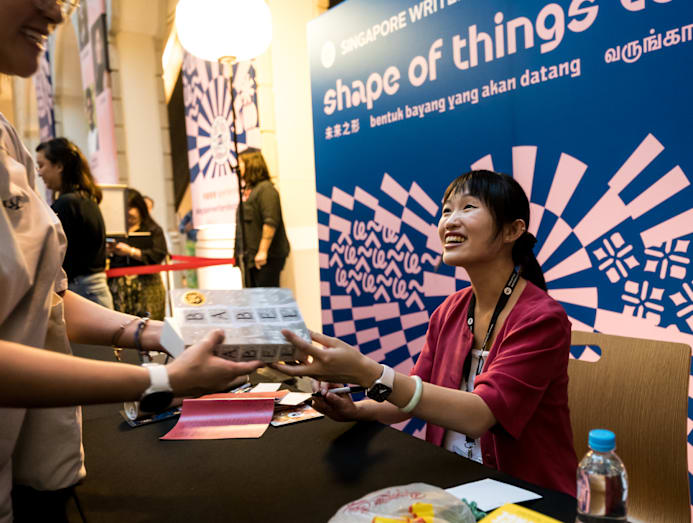 Hundreds of fans queued to have their books signed by RF Kuang after her keynote speech on Nov 8, 2025, at the Singapore Writers Festival 2025. (Photo: Moonrise Studio, courtesy of Arts House Group)
Hundreds of fans queued to have their books signed by RF Kuang after her keynote speech on Nov 8, 2025, at the Singapore Writers Festival 2025. (Photo: Moonrise Studio, courtesy of Arts House Group)
How do you feel knowing you’re seen as a role model to women and young people around the world?
When I meet people in my signing lines, many women often tell me that reading my work first makes them proud of who they are and of their identities, and secondly, excited about writing themselves.
They’d tell me: “Your work got me into reading again!” or “Your work made me curious about all these other fields!”
That’s the best possible feeling to have when you are a stepping stone in somebody else’s intellectual journey.
Just at this festival, at least hundreds of people told me that reading my work made them feel like they could write their own stories based on their own views and lived experiences – and that’s amazing.
How has your Chinese-American background and academic experience shaped your storytelling?
Writing fiction is my form of academic note-taking, literally. When I write fiction, it’s usually a way to process a new field for myself and a way to understand my identity as a Chinese-American woman, among other things.
A lot of the topics I write about, I actually come to them as a beginner. I want my text to reflect that novice's passion and excitement, rather than the teacher's condescension.
When I was an undergraduate sitting for my lectures, I’d do this thing. On the right side of my notebook, I would take notes of what the professor was saying factually, and on the left side, I would write down story ideas based on what he was talking about.
For instance, I was at this philosophy seminar, and a guest scholar came in and he wrote a paper on the “epistemic inequality and understandings of oppression exploitation” – which is really a lot of long, boring words. But it’s essentially about the myth that if you’re suffering from an unequal power relationship, then you are more qualified than anybody else to describe it.
So as he was going through these clinical and logical – and so, so dry – arguments, I was drafting this story about alien biologists.
They go to a planet and they witness horrible things happening to the aliens, but every oppressed alien that the biologists speak to is telling them: “No! Things are absolutely fine!”
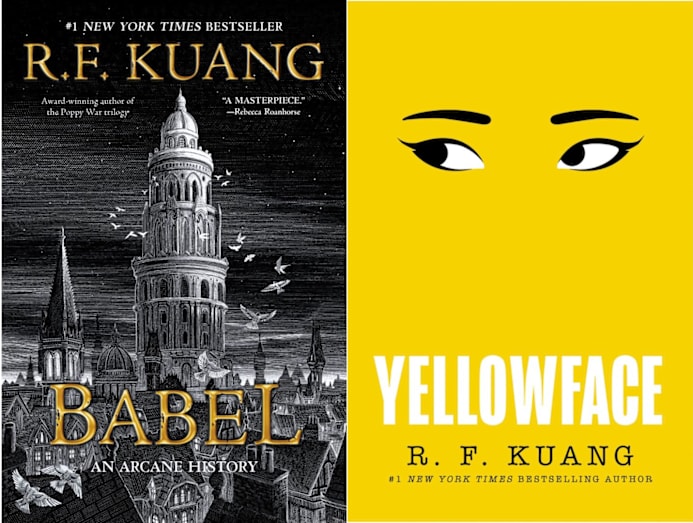 Babel (2022) and Yellowface (2023) are two of Kuang’s bestselling novels, both of which explore the characters’ complex relationships with misogyny, racism and colonial powers. (Photo: HarperCollins Publishers)
Babel (2022) and Yellowface (2023) are two of Kuang’s bestselling novels, both of which explore the characters’ complex relationships with misogyny, racism and colonial powers. (Photo: HarperCollins Publishers)
You're known for your anti-colonial and feminist writing. How do you balance your political views in your fiction work?
Often, when characters have intense contemporary political disagreements all the time in my books – like in Yellowface or Babel – it’s because I myself am trying to work through difficult yet important issues in real life, like racism, misogyny, genocide, or colonialism.
Writing can be so boring when the author is so sure of their beliefs that they’re just trying to preach to the reader and tell the reader, A is correct and B is wrong.
In my texts, everybody’s wrong and everybody is struggling to reach the truth in different ways. I find that dialectic to be more productive because I don’t have 100 per cent confidence in anything.
I’m always trying to change my mind, learn more and do further research into my own opinions. I’ve been wrong about a lot of things.
Does your personal life ever influence the stories and characters you write?
Every book I write is a reflection of who I was at the stage of my life and carries the way I perceive the people around me. It’s a way for me to process that part of my identity.
When I was writing Katabasis, I was dating my then-boyfriend philosopher-husband, who I married last year and who is also an academic.
A lot of the ideas about hell, psychological burnout and the different costs of ambition were explored in the book because my husband and I would talk about big, philosophical concepts in small, silly and funny ways, and they ended up always on my mind.
So, reading The Poppy War, which I wrote when I was a teenager, often feels like listening to my younger, emo and goth sister. It can be embarrassing, for sure. But I empathise with her, and I also disagree with her.
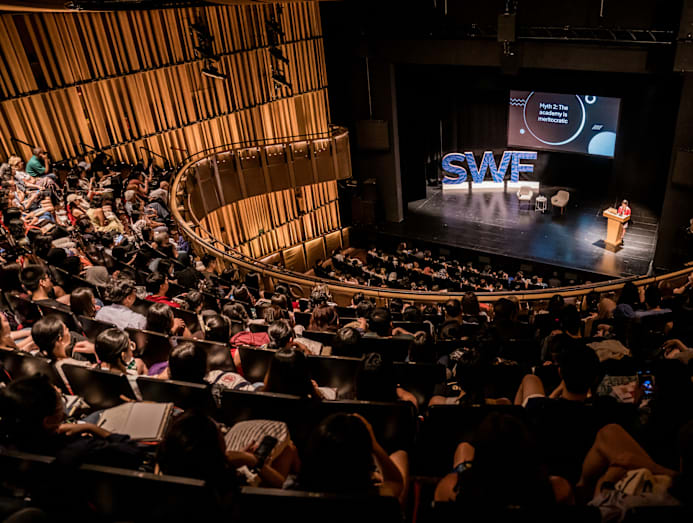 Kuang delivered a keynote speech on the myths surrounding academia and was a panel speaker on anti-colonial historical fiction. (Photo: Moonrise Studio, courtesy of Arts House Group)
Kuang delivered a keynote speech on the myths surrounding academia and was a panel speaker on anti-colonial historical fiction. (Photo: Moonrise Studio, courtesy of Arts House Group)
As the keynote speaker and panellist for SWF 2025, what stood out to you about Singapore?
It’s my first time in Singapore, and the writers festival here is one of the best festival experiences I’ve ever had. The conversations have been so rich and fascinating.
The racial, religious, ethnic, linguistic and cultural diversity here interests me a lot. There are so many thought-provoking historical perspectives, too.
As a Chinese-American, it’s been really fascinating to witness the Chinese diaspora in Singapore. I see so many parts of myself here – the English-speaking side, and the Chinese-speaking side too.
Here is also where I’ve heard and met so many people who can speak different dialects of Chinese, like Cantonese, Hokkien, and even Hainanese.
I’m here with my mother for a whole week, and because she’s from Hainan Island and also speaks different Chinese dialects, seeing her interact with the Chinese community here has been very special. She seems to feel right at home, visiting the local supermarkets and calling older folks ‘aunty’ or ‘uncle’.
As both an academic and an author, what did you make of Singlish?
Yes, don’t play, play, ah!
I love how languages interact with each other here. The Singlish here shows how a lot of different languages came together in Singapore, and I find that so beautiful.
I need to pick up more Singlish by the time my week here is over.
Singapore Writers Festival runs until Nov 16. To purchase tickets for the events and panels, you can visit the website.
CNA Women is a section on CNA Lifestyle that seeks to inform, empower and inspire the modern woman. If you have women-related news, issues and ideas to share with us, email CNAWomen [at] mediacorp.com.sg.

